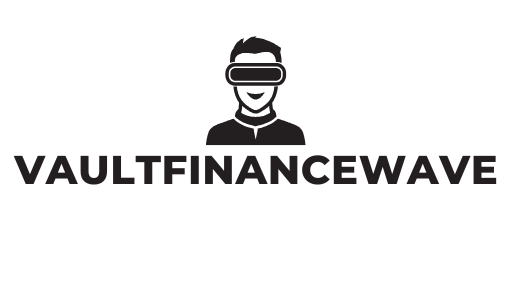Table of Contents
ToggleIn today’s tech-driven world, mastering programming languages is essential for anyone looking to thrive in the software industry. C++ stands out as a powerful and versatile language, widely used in game development, systems programming, and high-performance applications. As the demand for skilled C++ developers continues to rise, many are seeking accessible ways to learn this valuable skill.
Fortunately, a plethora of free C++ courses are available online, catering to beginners and experienced programmers alike. These courses offer a fantastic opportunity to dive into the fundamentals of C++, explore advanced concepts, and build real-world projects—all without spending a dime. Whether someone is aiming to enhance their career prospects or simply wants to explore a new hobby, free C++ courses can provide the perfect starting point.
Overview of Free C++ Courses
Free C++ courses provide comprehensive learning opportunities for individuals aiming to develop programming skills. These courses cover fundamental concepts such as variables, control structures, and object-oriented programming. Advanced topics like memory management, data structures, and algorithms frequently appear in these offerings.
Online platforms host a variety of free C++ courses. Examples include:
- Coursera: Features university-led courses with structured content and peer interaction.
- edX: Offers courses from academic institutions, focusing on practical applications.
- Codecademy: Provides interactive lessons emphasizing hands-on coding experience.
- Udacity: Delivers free course materials with access to project-based learning.
These courses typically include video lectures, quizzes, and coding assignments. Interactive coding environments in many platforms allow learners to practice directly within their browsers. Resources like discussion forums encourage collaboration among peers, enhancing the learning experience.
Course durations vary, generally ranging from a few weeks to several months. Most courses allow participants to learn at their own pace, ensuring flexibility for busy schedules. Engaging with free C++ courses supports skill-building without financial commitment, making learning accessible to a broader audience.
Benefits of Learning C++

Learning C++ provides significant advantages for both career progression and personal skill enhancement. The language’s versatility and widespread use ensure that mastering it opens numerous doors.
Career Opportunities
C++ expertise leads to diverse career paths in several high-demand sectors. Opportunities include:
- Software Development: Companies seek C++ developers for building applications, platforms, and system tools.
- Game Development: C++ serves as a foundation for game engines like Unreal Engine, making it essential for aspiring game developers.
- Systems Programming: C++ is instrumental in developing operating systems and embedded systems, vital for hardware-related jobs.
- Finance: The finance industry utilizes C++ for high-frequency trading platforms and financial modeling due to its performance efficiency.
Skill Development
- Problem-Solving: C++ encourages logical thinking and algorithmic skills, foundational for software development.
- Object-Oriented Programming: Understanding concepts like inheritance and polymorphism enhances the programming toolkit.
- Memory Management: C++ emphasizes manual memory management, providing insight into how computer systems operate.
- Data Structures and Algorithms: Mastering these elements in C++ strengthens overall programming competence, improving coding abilities across languages.
Popular Free C++ Courses
Numerous free C++ courses exist for learners at various skill levels. Each course provides structured content and practical exercises to facilitate skill development.
Course 1: Description and Features
Course Name: C++ for C Programmers by University of California, Santa Cruz (Coursera)
Duration: Approximately 4 weeks
Level: Intermediate
C++ for C Programmers focuses on transitioning from C to C++. It covers essential concepts like classes, polymorphism, and templates. The course features video lectures, quizzes, and peer-reviewed assignments, catering to individuals with prior programming experience. Students can access coding exercises directly in their browsers, promoting hands-on learning.
Course 2: Description and Features
Course Name: C++ Tutorial for Complete Beginners by Udemy
Duration: 12 hours of on-demand video
Level: Beginner
C++ Tutorial for Complete Beginners provides a comprehensive introduction to C++. It covers variables, data types, control flow, and functions. The course offers practical coding assignments and downloadable resources for offline learning. Learners gain the ability to apply foundational skills in real-world projects. The accessible format accommodates various learning styles and paces, enhancing the learning experience.
How to Choose the Right Free C++ Course
Selecting an appropriate free C++ course involves considering personal skill levels and preferred learning styles. By analyzing these aspects, learners can find a course that effectively meets their needs.
Assessing Your Skill Level
Assessing one’s skill level helps in selecting a course aligned with existing knowledge.
- Beginner: Those new to programming should seek introductory courses, focusing on basic concepts, syntax, and fundamental programming principles. Courses like “C++ Tutorial for Complete Beginners” provide a solid foundation.
- Intermediate: Individuals with prior experience in programming or C can opt for intermediate courses, which delve deeper into concepts like classes, inheritance, and data structures. The “C++ for C Programmers” course is suitable at this level.
- Advanced: Experienced programmers may benefit from advanced courses that cover topics such as memory management, algorithm optimization, or design patterns. Look for courses that offer practical projects to enhance real-world application abilities.
Identifying Your Learning Style
Identifying personal learning styles assists in making the right course choice.
- Visual Learners: Courses featuring video lectures and visual aids, such as diagrams or flowcharts, cater to visual learners. Platforms like Coursera often include engaging video content.
- Auditory Learners: Those who learn best by listening may prefer courses with audio explanations or podcasts. Lessons that include discussions or lectures benefit auditory learners.
- Kinesthetic Learners: Hands-on learners thrive in courses with coding exercises or projects. Interactive platforms like Codecademy provide opportunities for immediate practice, allowing learners to apply concepts actively.
- Self-directed Learners: Courses that offer modular content and allow flexible pacing suit self-directed learners best. Udacity provides a range of self-paced courses that enable learners to progress at their own speed.
Tips for Success in Free C++ Courses
Success in free C++ courses hinges on clear strategies. Implementing practical tips can enhance learning and skill acquisition.
Setting Learning Goals
Setting specific learning goals proves vital for success in free C++ courses. Defining goals can help maintain focus and motivation. Goals should align with personal aspirations, whether mastering basic syntax or developing complex applications. Consider using the SMART criteria:
- Specific: Identify exact skills to learn.
- Measurable: Establish quantifiable milestones, such as completing specific modules.
- Achievable: Set realistic targets based on current skill levels.
- Relevant: Ensure goals relate to career aspirations or personal interests.
- Time-bound: Determine a timeline for reaching each goal.
By creating clear goals, learners track progress, making adjustments as needed for optimal results.
Engaging with the Community
Engaging with the programming community enhances the learning experience in free C++ courses. Interacting with peers can provide additional support and motivation. Consider these methods for community engagement:
- Join Forums: Participate in online forums like Stack Overflow or Reddit communities focused on C++.
- Attend Meetups: Look for local or virtual C++ meetups to network with other learners and professionals.
- Collaborate on Projects: Partner with fellow learners on coding projects or contribute to open-source initiatives.
- Follow Online Tutorials: Engage with community-created tutorials and resources, sharing insights and learning from others’ experiences.
Active community participation fosters collaboration, knowledge sharing, and a deeper understanding of C++.
Exploring free C++ courses opens doors to valuable skills in a competitive job market. With a variety of options available online learners can easily find resources tailored to their needs. Whether starting from scratch or looking to deepen existing knowledge these courses provide an excellent foundation in programming.
By engaging with the content and participating in community discussions learners can enhance their understanding and application of C++. As they progress through the courses they’ll not only gain technical skills but also develop problem-solving abilities that are crucial in today’s tech landscape. Embracing this opportunity could lead to exciting career paths and personal growth in the world of programming.




